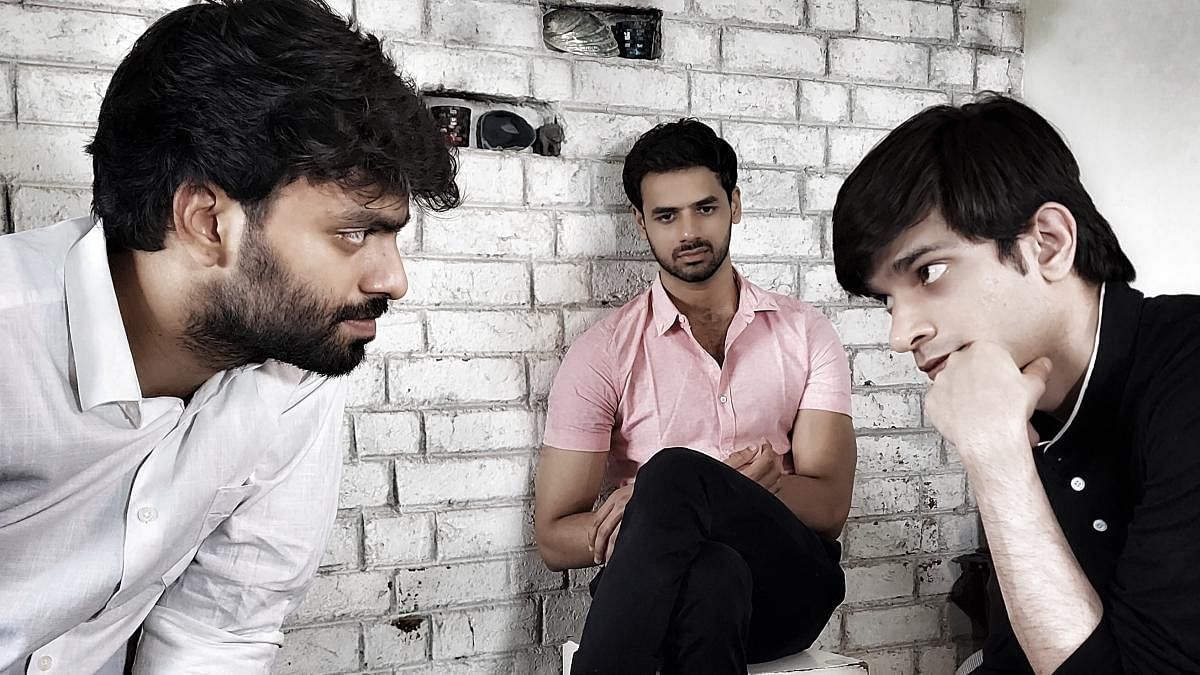
The aching loneliness of a youth who seeks companionship through a radio programme using different aliases is truly heart-rending. Anuj/ Ruksana Beg aur Saathi/ Nihir is emotionally dependent on a song request broadcast where he identifies with soulful, female songs. The host of the show, Humraz, indulges him and encourages him to read out his own soulful lines that speak of insensitive lovers. Humraz, himself, leads a dual life. As a radio host, he is supportive and charming. In his personal life as Akash, he can be nasty and domineering. Just the way he is with chef Sahir. Akash craves for Sahir’s love but the chef is in a steady relationship with a Frenchman whom he marries.
All three protagonists of Dry Ice, written and directed by Vikram Phukan, belong to the queer community.
The play premièred digitally on SKILLBOX on World Suicide Prevention Day. Phukan’s earlier play, Those Left Behind Things, was also about gay men, who flee from Iran to seek asylum in Britain.
Dry Ice is a complex play that’s a bit laboured in parts as it throws up issues of love, loneliness, vulnerability, death, that members of the queer community grapple with. These are not issues exclusive to same-gender couples, but their circumstances are different. On the eve of National Coming Out Day, we spoke to Phukan about his second outing as a theatre director…
Since 2018, Section 377 of the IPC cannot be applied to consenting adults choosing partners of the same sex. Why do your protagonists still resort to anonymity and secrecy?
Some characters in Dry Ice are closeted but there are others much more forthright about themselves who have embraced who they are unapologetically. These represent the spectrum of attitudes I’ve observed in reality, which continue to persist to this day. Sec 377 may have been read down but only those with blinkers on would think that queer people do not continue to put themselves at risk every day in a society that only begrudgingly accepts them. The negotiation between privacy and openness is a private struggle I would never disparage. In fact, it makes for beautifully conflicted characters.
Death is omnipresent in your play, with your characters often referring to friends they have lost. What made you incorporate this dark streak in a play that has gay men as its subject?
Dry Ice is not a primer about gay men, it is about life and relationships within the context of queer existence. It’s a play that seeks to reflect on the spate of deaths within online queer communities, and how that has led to collective soul-searching.
This is the story I wanted to tell, and it doesn’t preclude the idea that amidst the hopelessness, there is also resilience and redemption and the gumption to live and survive. Yes, death is dark, but its omnipresence cannot be denied. We make amends with the reality in which we find ourselves, but we also constantly attempt to transcend it. There is a compelling frisson to that trade-off.
Both the plays you have directed revolve around same-sex partners. Why is there a need to repeatedly draw attention to members of the queer community?
This is not a question likely to be asked to those who work within mainstream parameters. It’s surprising that even given the sheer dearth of representation of queer experiences on stage, two plays in a limited oeuvre is still seen as too noticeable a persuasion. I believe that pigeon-holing is in the eyes of the beholder. Side-stepping these considerations, I try and work with ideas that come to me intuitively. For instance, Those Left Behind Things was about Iranian asylum seekers who happen to be queer, and my next play Adventures of Jil Jil, is about an outlandish, fictional, folk performer from vintage Tamil cinema. These are altogether different universes, but my gaze remains my own.
(The play is available on demand. Write to dryice.project2021@gmail.com)